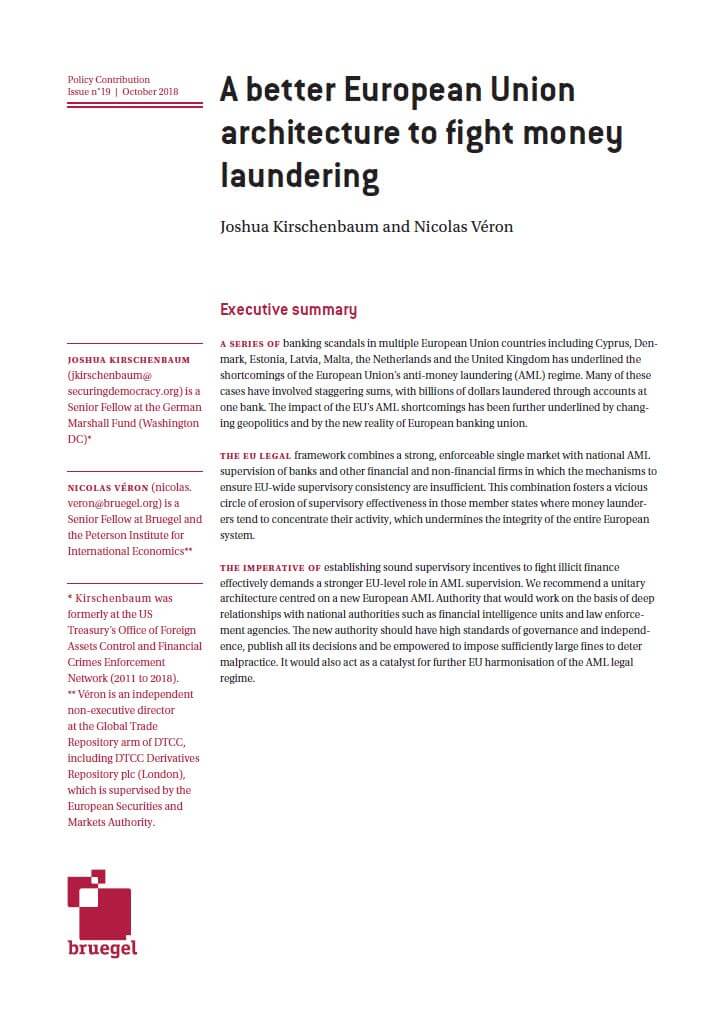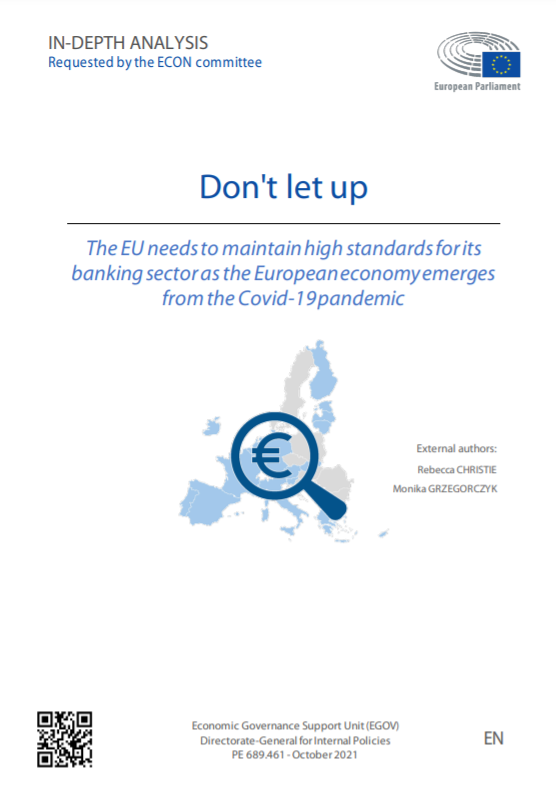Policy Contribution
A better European Union architecture to fight money laundering
A series of banking scandals in multiple EU countries has underlined the shortcomings of Europe's anti-money laundering regime. The impact of these shortcomings has been further underlined by changing geopolitics and by the new reality of European banking union. The imperative of establishing sound supervisory incentives to fight illicit finance effectively demands a stronger EU-level role in anti-money laundering supervision. The authors here detail their plan for a new European unitary architecture, centred on a new European anti-money laundering authority that would work on the basis of deep relationships with national authorities.
A series of banking scandals in multiple European Union countries including Cyprus, Denmark, Estonia, Latvia, Malta, the Netherlands and the United Kingdom has underlined the shortcomings of the European Union’s anti-money laundering (AML) regime. Many of these cases have involved staggering sums, with billions of dollars laundered through accounts at one bank. The impact of the EU’s AML shortcomings has been further underlined by changing geopolitics and by the new reality of European banking union.
The EU legal framework combines a strong, enforceable single market with national AML supervision of banks and other financial and non-financial firms in which the mechanisms to ensure EU-wide supervisory consistency are insufficient. This combination fosters a vicious circle of erosion of supervisory effectiveness in those member states where money launderers tend to concentrate their activity, which undermines the integrity of the entire European system.
The imperative of establishing sound supervisory incentives to fight illicit finance effectively demands a stronger EU-level role in AML supervision. We recommend a unitary architecture centred on a new European AML Authority that would work on the basis of deep relationships with national authorities such as financial intelligence units and law enforcement agencies. The new authority should have high standards of governance and independence, publish all its decisions and be empowered to impose sufficiently large fines to deter malpractice. It would also act as a catalyst for further EU harmonisation of the AML legal regime.



















